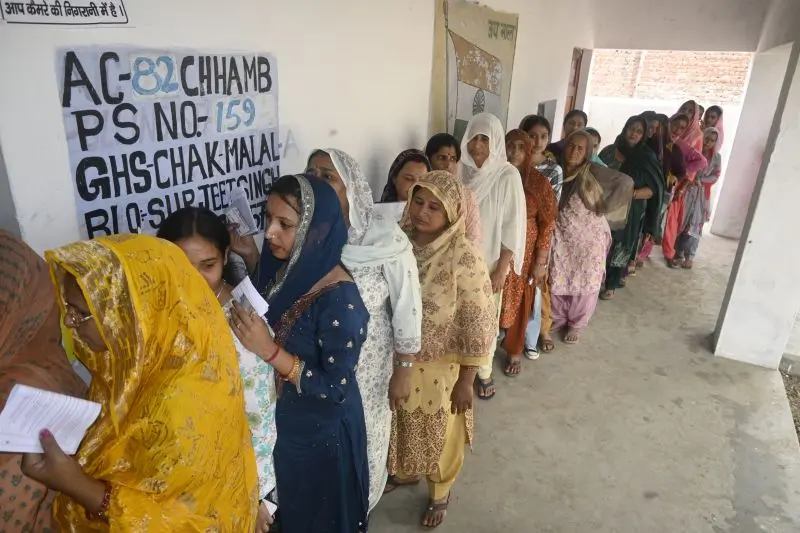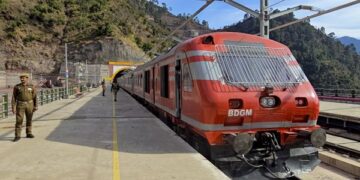The long-awaited dates for the Jammu and Kashmir Assembly elections have finally been announced. The elections will be conducted in three phases. Voting for the first phase, covering 24 seats, will take place on September 18. The second phase, involving 26 seats, will occur on September 25, and the third phase, comprising 40 seats, will be held on October 1. The results of the elections will be declared on October 4. It is noteworthy that the Supreme Court had mandated that assembly elections in the region be held by September 30, 2024. This will be the first assembly election in Jammu and Kashmir since the abrogation of Article 370, which occurred on August 5, 2019.
Previously, Jammu and Kashmir had a total of 111 assembly seats, with Jammu having 37, Kashmir 46, and Ladakh 4. Additionally, there were 24 seats designated for Pakistan-occupied Kashmir (PoK). However, due to a recent delimitation process, the number of seats has been revised. Jammu will now have 43 seats, while Kashmir will have 47. The 24 seats for PoK will continue to be reserved.
Two seats have been reserved for Kashmiri Pandits, although they are referred to as Kashmiri migrants. Moreover, the Lieutenant Governor will have the authority to nominate three members to the assembly, two of whom will be Kashmiri migrants and one a displaced person from PoK. Of the two Kashmiri migrant nominees, one must be a woman. A Kashmiri migrant is defined as someone who migrated from the Valley or any part of Jammu and Kashmir after November 1, 1989, and is registered with the Relief Commissioner. Those who migrated from PoK following the events of 1947-48, 1965, or 1971 will be considered displaced persons.In addition, 16 seats have been reserved for Scheduled Castes (SC) and Scheduled Tribes (ST). Out of these, 7 seats are allocated for SC candidates, while 9 seats are reserved for ST candidates.
Needless to mention here that the upcoming assembly elections in Jammu and Kashmir are highly significant as they mark the first electoral exercise since the revocation of Article 370, which had granted special autonomy to the region. This election is seen as a pivotal step towards restoring democratic processes in the union territory. The delimitation process, which has increased the number of assembly seats in Jammu, is also likely to have a considerable impact on the region’s political landscape.
The reserved seats for Kashmiri Pandits and migrants from PoK reflect the administration’s efforts to address long-standing issues related to displacement and representation. However, the effectiveness of these measures will depend on the implementation and response from the affected communities.
Furthermore, the Supreme Court’s directive to conduct the elections by September 30, 2024, emphasizes the urgency of re-establishing a representative government in Jammu and Kashmir. As the elections approach, the eyes of the nation and the international community will be on Jammu and Kashmir, watching closely how this democratic process unfolds and what it signals for the future of the region.
As the electoral process in Jammu and Kashmir unfolds, the state has become a hub of intense political activity, with leaders and party workers vigorously campaigning to garner support. In this charged atmosphere, promises are made, and the exchange of allegations between competing factions is inevitable. In such a scenario, the role of the media becomes not only important but also crucial for the integrity of the democratic process.
The media is the primary bridge between politicians and the electorate, and its responsibilities during this period extend far beyond mere reporting. It is essential that media outlets adhere to the highest standards of journalistic ethics, ensuring objective and factual coverage of the campaigns. By doing so, they empower voters to make informed decisions, free from the distortions of misinformation and propaganda.
In these crucial times, the responsibility placed on the shoulders of media professionals is immense. Their commitment to accuracy, impartiality, and the ethical dissemination of information will be instrumental in ensuring a transparent and fair election process in Jammu and Kashmir.
The plight of around 450,000 Kashmiri Pandits displaced from the Valley due to separatist militancy had often been overlooked in mainstream discourse. This lack of attention may be attributed to their relatively small electoral significance, which failed to garner substantial political interest or intervention. However, with the recent initiative to reserve or nominate two seats specifically for migrants, there is renewed hope for the Kashmiri Pandit community. This development is expected to provide them with a platform to voice their concerns and seek redress for their long-standing grievances.
The writer is former Fellow, IIAS, Shimla (H.P). skraina123@gmail.com



